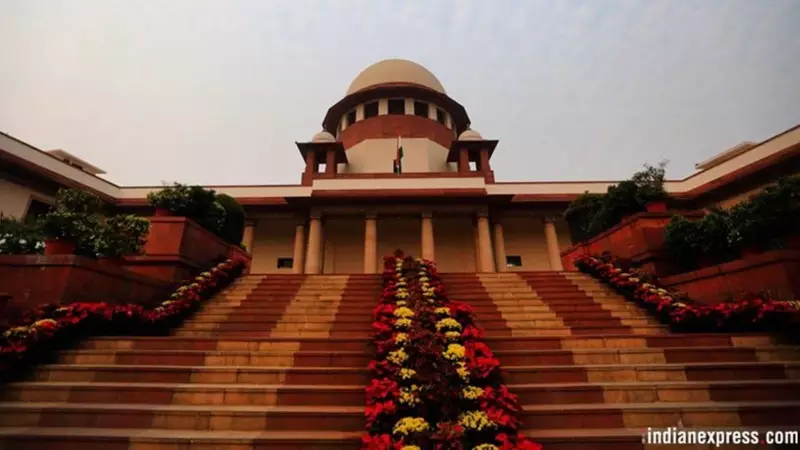
Supreme Court Takes Stand on Presidential Reference
The Constitution bench of the Supreme Court has provided a detailed explanation for its decision to answer the Presidential reference concerning the powers of the President and Governors in giving assent to Bills. The five-judge bench, while clarifying that constitutional authorities are not bound by judicially prescribed timelines, first elaborated on why it considered it essential to respond to the reference made by President Droupadi Murmu.
The court delivered its reasoning on November 20, 2025, addressing significant constitutional questions about the functioning of the country's highest offices. This development comes after President Murmu invoked the Supreme Court's advisory jurisdiction on May 13 under Article 143(1) of the Constitution, seeking clarity on the time limit for assenting to bills.
Opposition to the Reference and Court's Response
Several parties had unanimously argued against the maintainability of the Presidential reference, urging the court to decline and return it unanswered. The central argument focused on Article 143, which allows the President to refer questions to the Supreme Court when a 'question of law or fact has arisen, or is likely to arise.'
Opponents contended that this condition wasn't met since a two-judge bench had previously addressed similar issues in the Tamil Nadu bills case. Counsel representing these parties stressed that the Presidential reference amounted to an appeal or review in disguise, attempting to bypass established judicial procedures.
Despite these objections, the Constitution bench proceeded to answer the questions, providing ten compelling reasons for its decision that highlight the court's constitutional responsibilities and the importance of clarifying governance mechanisms.
The Ten Crucial Reasons Explained
1. Institutional Capacity and Constitutional Duty: The court emphasized its endowed institutional capacity and constitutional duty to answer references that ensure the Constitution is nurtured and works for public benefit.
2. Constitutional Dialogue: The exercise of this advisory function represents a constitutional dialogue between the Executive and Judiciary, facilitating inter-branch communication.
3. Need for Authoritative Opinion: An authoritative opinion became necessary since the law governing the functions of Governor and President under Articles 200 and 201 cannot remain in confusion, as this would impede the Constitution's smooth functioning.
4. Presidential Satisfaction: There exists substantial satisfaction of the President that questions of law have arisen, or are likely to arise, which are of public importance and necessitate the court's opinion.
5. Institutional Responsibility: The court described it as an institutional responsibility to tender its opinion on this functional reference sought by the country's highest constitutional functionary.
6. Ironing Out Constitutional Creases: The court cannot shirk its responsibility to resolve constitutional ambiguities and authoritatively clarify the roles of constitutional institutions when doubts about their powers emerge.
7. Constitutional Service Mandate: The court is empowered and entrusted under Article 143 with the duty to answer such questions in service of the Constitution and the people who adopted it.
8. Judicial Propriety and Integrity: Judicial propriety and institutional integrity require that the Court answer the questions referred to it in the present proceedings.
9. Rejection of Mala Fide Allegations: The allegation that non-disclosure of the two-judge bench judgment reflects mala fides represents a leap in logic that doesn't behoove the Court to entertain against the highest constitutional functionary.
10. Maintainability Precedent: A challenge to the reference's maintainability on grounds of mala fide is no longer available in view of the Court's pronouncement in Natural Resources Allocation.
Context and Background
The Presidential reference follows the Supreme Court's April 8 ruling that fixed a three-month deadline for the President to clear Bills reserved for her consideration by the Governor. That ruling, delivered by a two-judge bench headed by Justice J B Pardiwala, set aside Tamil Nadu Governor R N Ravi's decision to withhold assent to ten pending Bills.
While the Constitution bench acknowledged there was no formulaic manner or timeline that courts could establish by judicial order, it significantly clarified that the constitutional office of Governor is definitely subject to the court's jurisdiction to prevent prolonged and evasive constitutional inaction.
Unlike regular court rulings, the opinion provided under Article 143 is advisory in nature and not binding. However, it carries significant weight in constitutional interpretation and establishes important precedents for future governance matters.
This development represents a crucial moment in Indian constitutional law, potentially shaping how Governors and the President exercise their powers regarding legislative bills across all states and at the central level.




